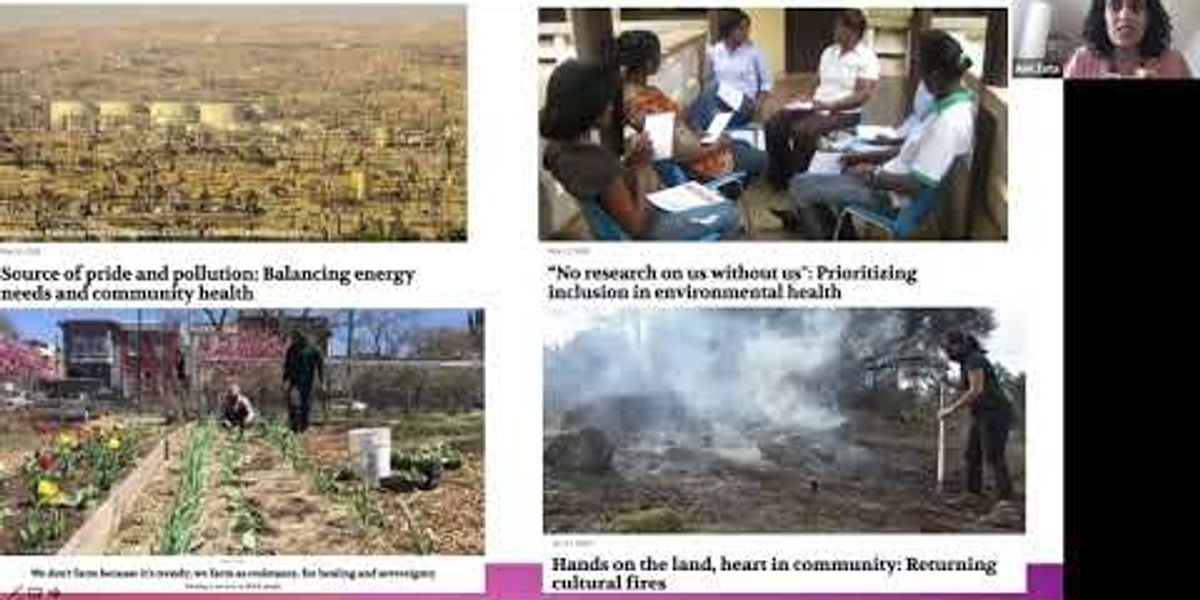
Four of the fellows who participated in the Agents of Change program this year joined the Collaborative on Health and the Environment to discuss their research, activism, and experiences with publishing their ideas.
Agents of Change is an ongoing series featuring the stories, analyses and perspectives of next generation environmental health leaders who come from historically under-represented backgrounds in science and academia. The series is a partnership between the George Washington University Milken Institute School of Public Health and Environmental Health News.
Ami Zota, program director of the series and an associate professor at the George Washington University Milken School of Public Health, led the discussion Thursday afternoon with Brianna VanNoy, Ashley Gripper, Deniss Martinez, and Max Aung, who have published articles focused on prioritizing inclusion in environmental health, Black food sovereignty, the ecology of Indigenous cultural fire practices, and balancing energy needs with community health.
The researchers discussed how their research maintains a community-focus, and the process of writing about their work in a deeply personal way for the series.
“For me the most meaningful feedback came from community members, people who are part of the Black farming community, Black folks in general who don’t farm … that was incredibly meaningful to me,” Ashley Gripper, a PhD Candidate in the Environmental Health Department at the Harvard T.H. Chan School of Public Health, said. “Because the whole point of writing this was to communicate something to an audience that may not be familiar with the research that I do, may not be familiar with Black farming in particular.
“And to hear from Black folks that don’t farm that they got it, they understood all these connection between urban agriculture…that it wasn’t something trendy, it was something that our ancestors have done for hundreds and thousands of years.”
See the full discussion above and check out the entire Agents of Change blog series.
Are you an early career scientist from a marginalized backgrounds and/or a population underrepresented in science and academia? Apply for the 2020/2021 Agents of Change fellowship.





